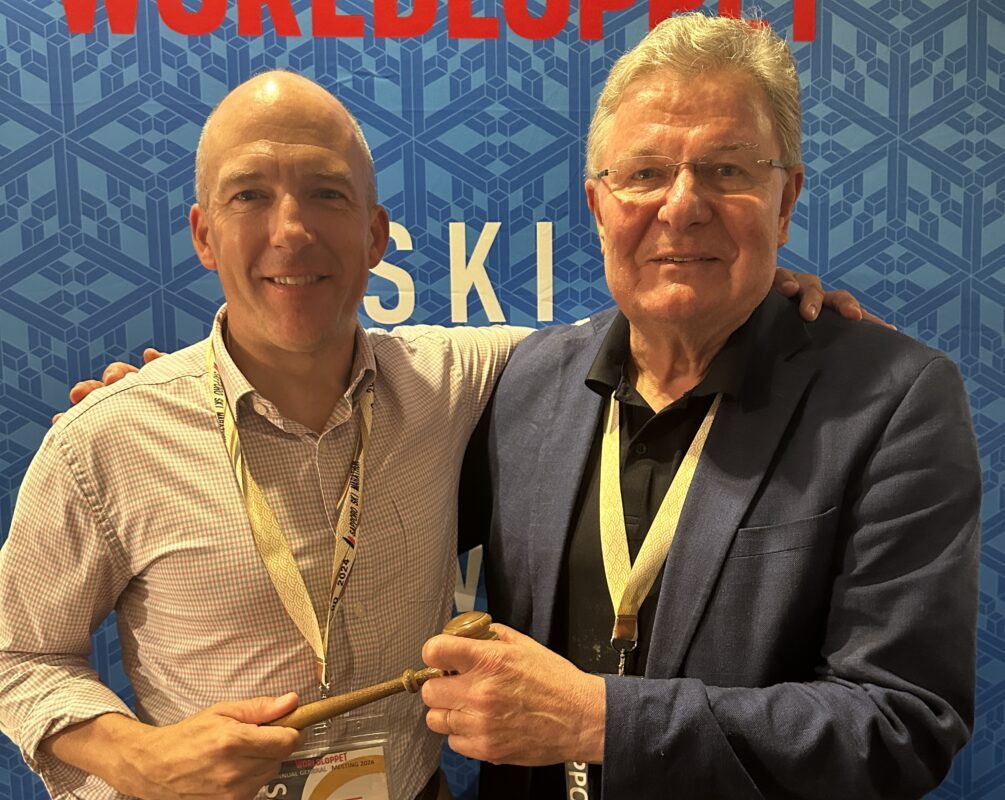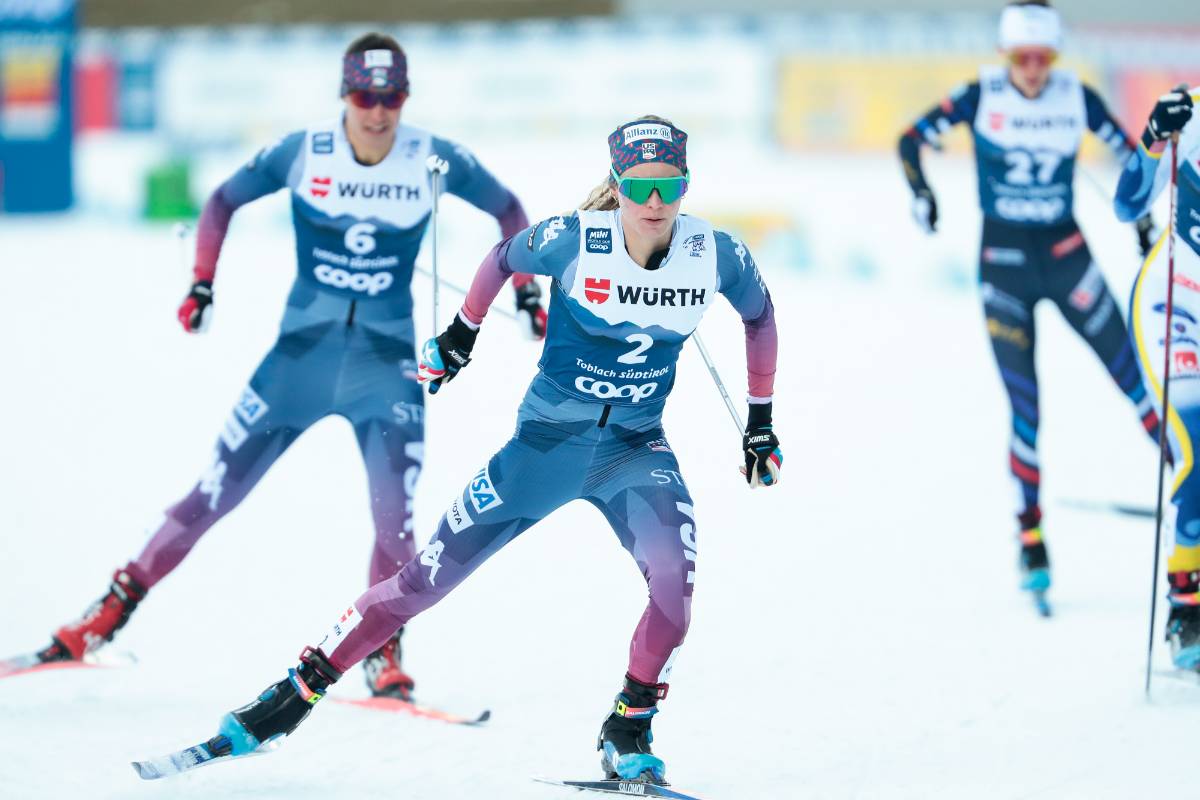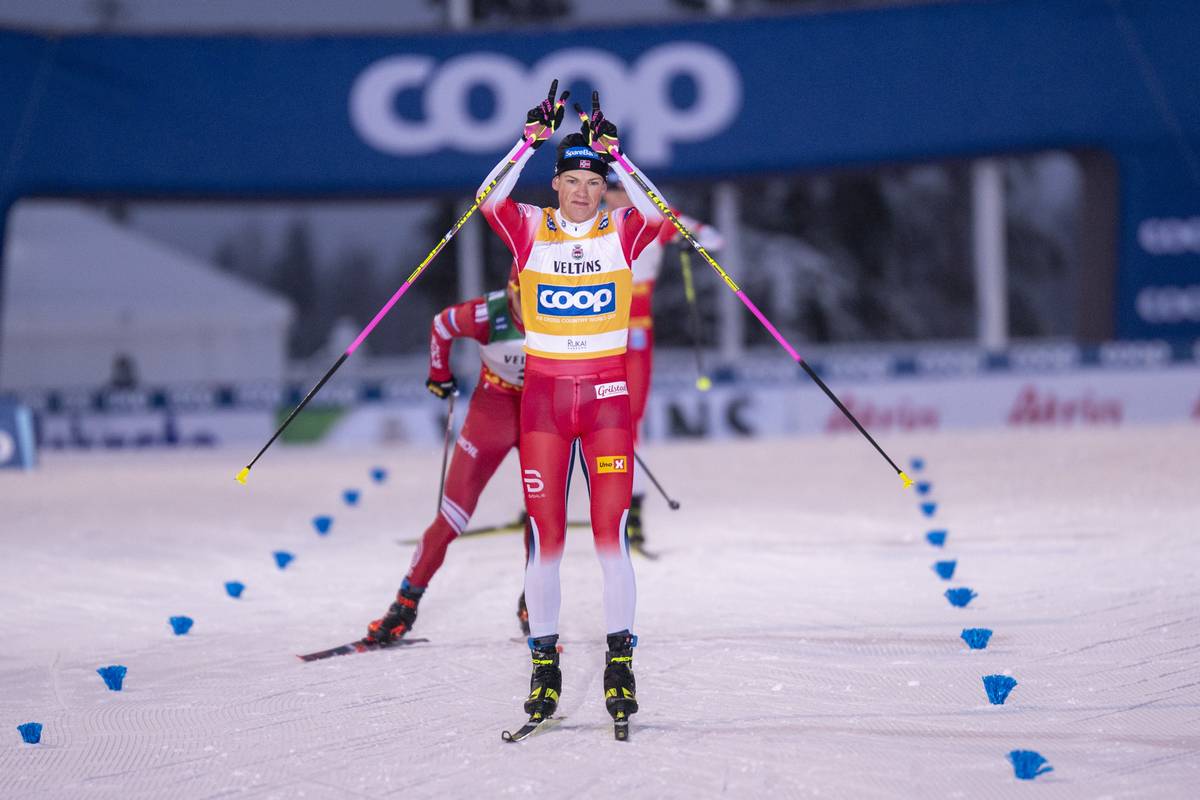
This World Cup coverage is made possible through the generous support of Marty and Kathy Hall and their A Hall Mark of Excellence Award. To learn more about A Hall Mark of Excellence Award or to learn how you can support FasterSkier’s coverage please contact info@fasterskier.com.
The human condition, let’s face it, is rife with fragility. Some days it’s up, others it’s down. Last Friday, Johannes Høsflot Klæbo of Norway had a surprised look of defeat when he placed second in Ruka, Finland’s classic sprint. This from a skier who in 2018 looked like a sprint king with no clothes.
Here’s what Gabby Naranja wrote then about the sprint final’s closing moments:
“From an outsider’s perspective, it seemed Johannes Høsflot Klæbo of Norway would open his World Cup 2018/2019 season with the familiarity of a win. The first FIS cross-country race of the year, a 1.4-kilometer classic sprint in Kuusamo, Finland, saw the 22-year-old round the course’s final turn in first, holding off his closest competitor, Alexander Bolshunov of Russia, by close to two meters.
Approaching the finishing stretch, Norway’s cross-country sprint king was still dictating the pace. He seemed well on his way to adding another World Cup sprint title to the eight he already holds. As Klæbo neared the finish line, he paused his double-pole to look behind him. A misstep that turned into Bolshunov’s chance.”
What transpired due to Klæbo’s cockiness in 2018 was a win for Russia’s Alexander Bolshunov. Since then, the two have been the Ali–Frazier of the men’s field. When the stars align, the two can provide wonderful sporting theatre.
That was the case Sunday, when Klæbo took the Ruka leader’s bib out on the course first, 16 seconds ahead of Bolshunov in second and teammate Emil Iversen in third, another five seconds in arrears.
For all practical purposes, the podium race was a three-skier affair amongst the first three starters. Initially, Klæbo gained some time as the catch-me-if-you-can yo-yo-ing played out. But shortly after the 5 k mark, Bolshunov and Iversen began to close in — the catch netted by 7.5 k.
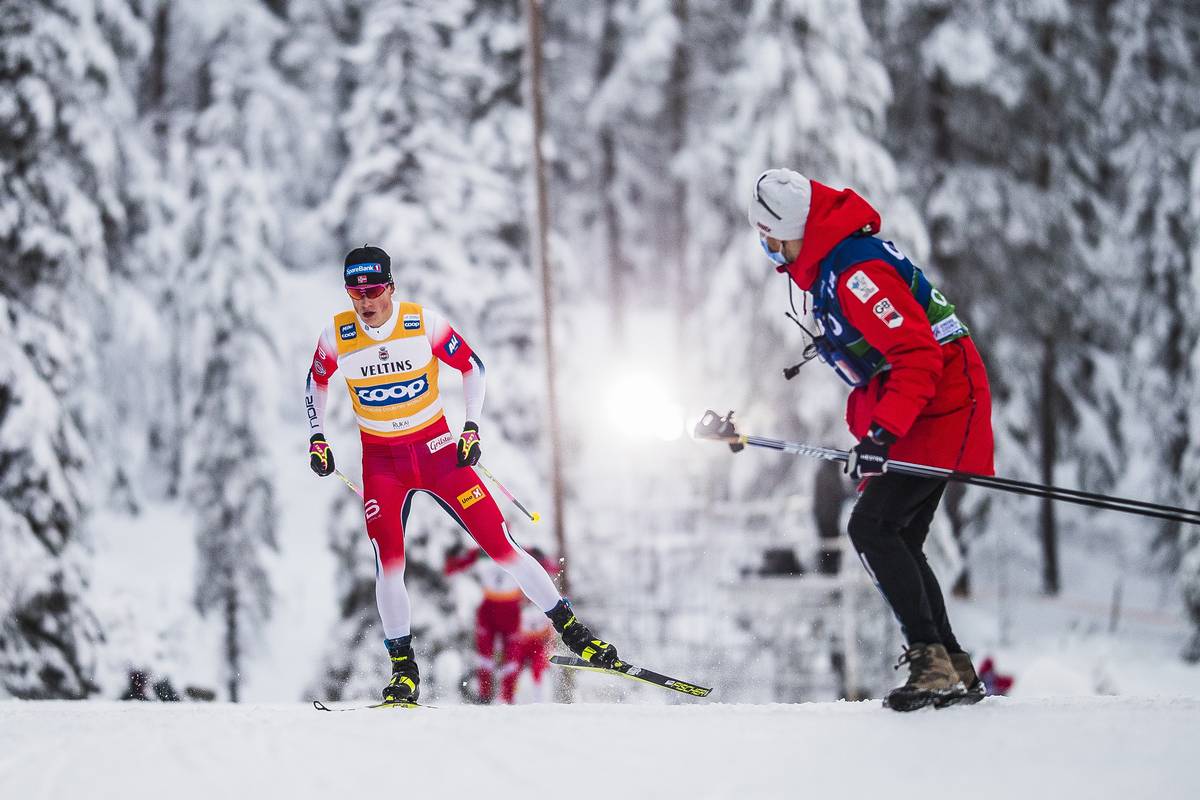
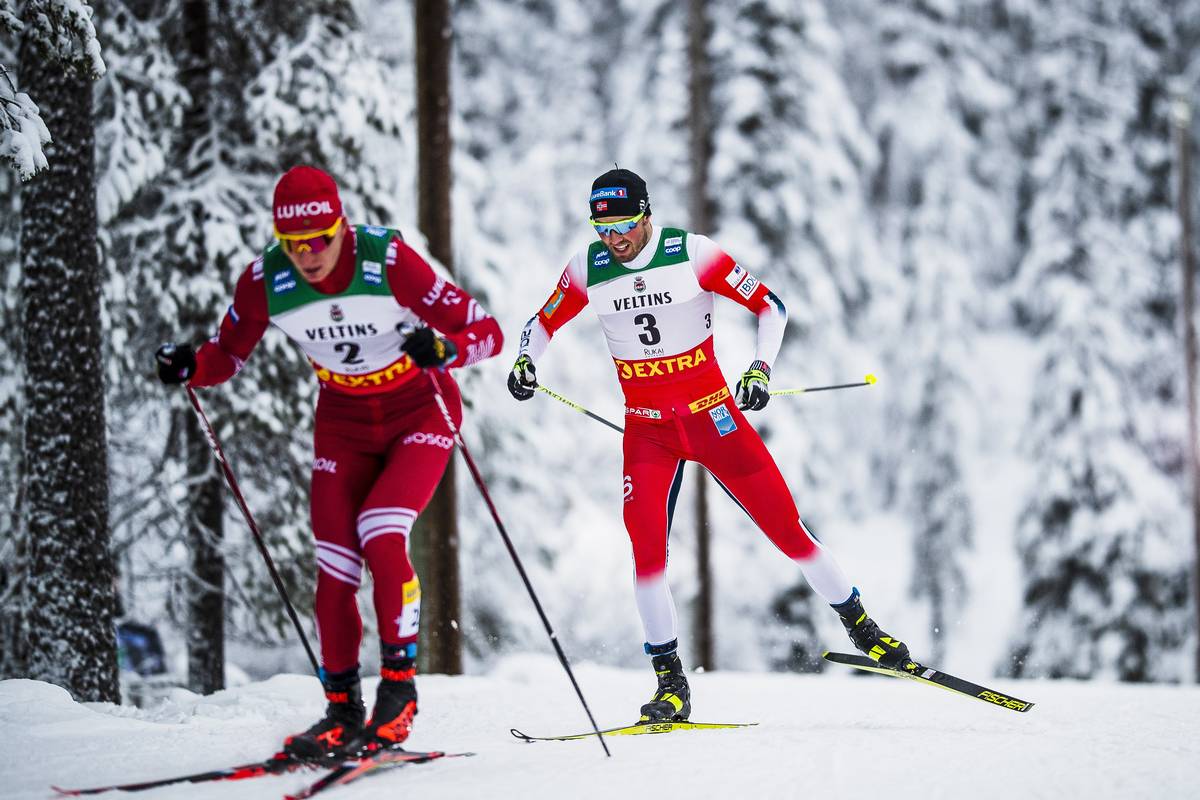
To use a word Devon Kershaw reserves for the rare few, Bolshunov is a “beast.” So it remained a possibility the Russian could pace off alone. Yet, the three skiers shadow boxed around the course, with no dodge or parry making an impact. Meanwhile, a few skiers lurked from behind: Hans Christer Holund, Iivo Niskanen, and Andrew Musgrave. None were able to come within a margin of fewer than 15 seconds.
Upfront, after all, remained Klæbo, perhaps the wiliest tactician since Petter Northug Jr. Klæbo is the sport’s foremost closer.
Bolshunov pulled the trio through in the last Ks. Klæbo marking Bolshunov. Iversen marking Klæbo. But it’s like the ending you know will go down. The roadrunner outwitting the coyote. It was a spot-on hop-skate from Klæbo on the course’s final hill (the same steep crusher featured on the sprint loop) that did Bolshunov and Iversen in.
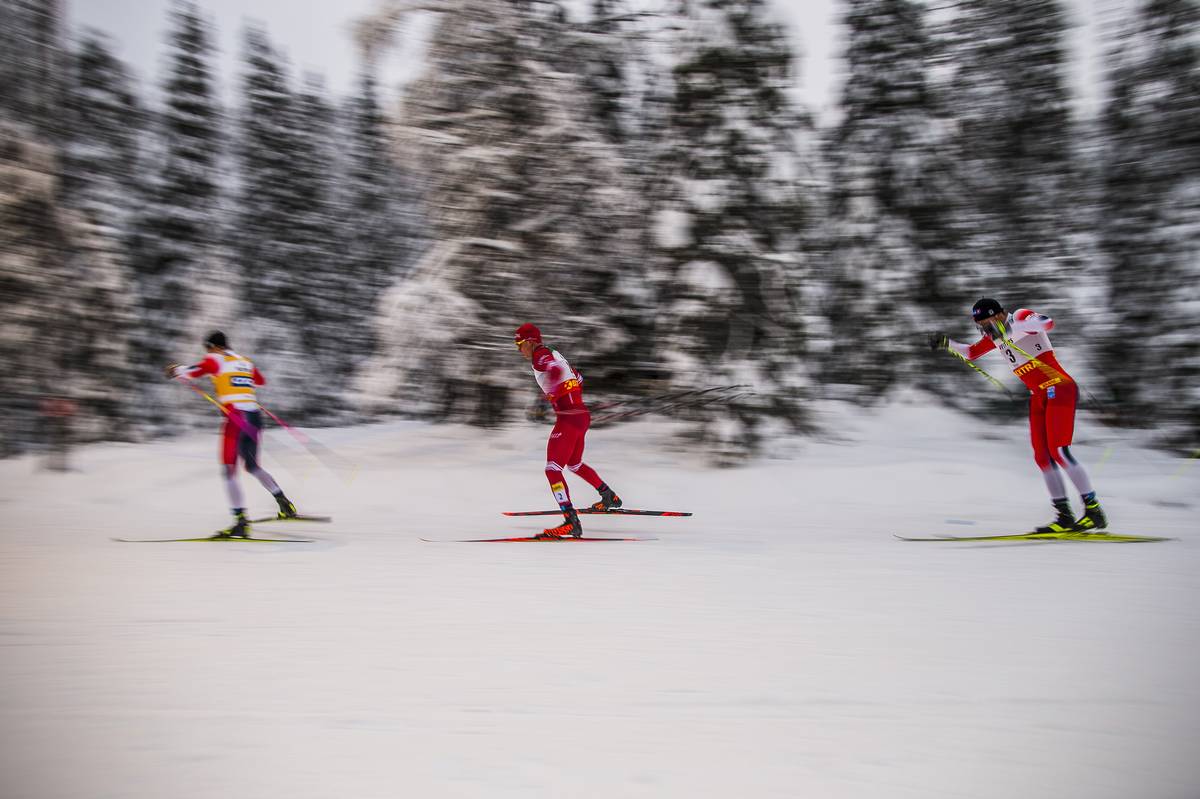
Down the last 100 meters, give a centimeter to the reigning Sprint Cup champion, you might as well have served up a kilometer. Maybe mindful of his 2018 mishap with Bolshunov, and certainly aware of making an early-season statement that he again was for real in the distance events, Klæbo shut it down and had a wee bit of time to spare as he crossed the line for the win in 35:09.8. Bolshunov was second (+0.7), Iversen third (+3.0).
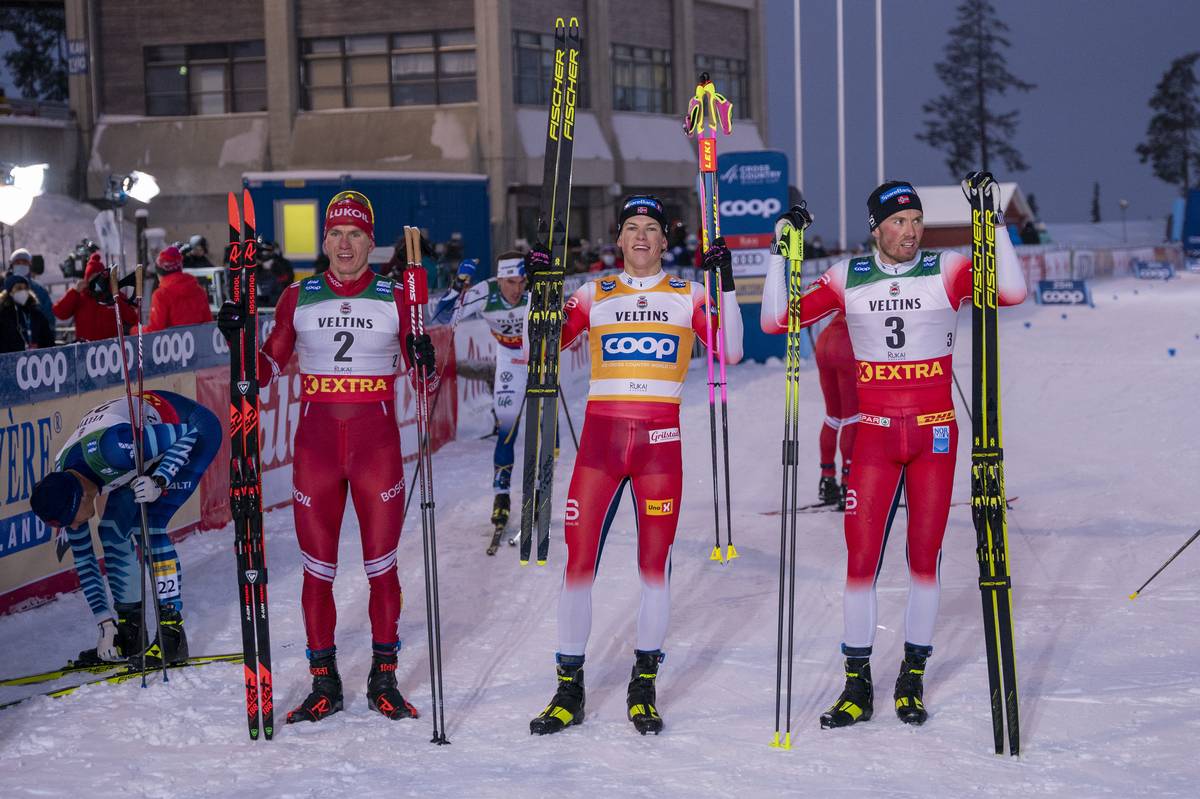
Holund, who made a solo effort away from the group of chasers, finished in fourth (+19.5), with Iivo Niskanen in fifth (+27.3), and Musgrave in sixth (+27.7). Holund skied the fastest time of day in 33:57.3.
For the U.S., Gus Schumacher skied to 32nd (+2:24.1) for his best career World Cup finish. In his first slate of European World Cups, the twenty-year-old from Anchorage, Alaska, finished 43rd, 38th, and 32nd, respectively, over the three-day series in Ruka. On Sunday, Schumacher raced to the 24th-fastest time of day, earning his first World Cup points in the process.
Post-race interview with Gus Schumacher
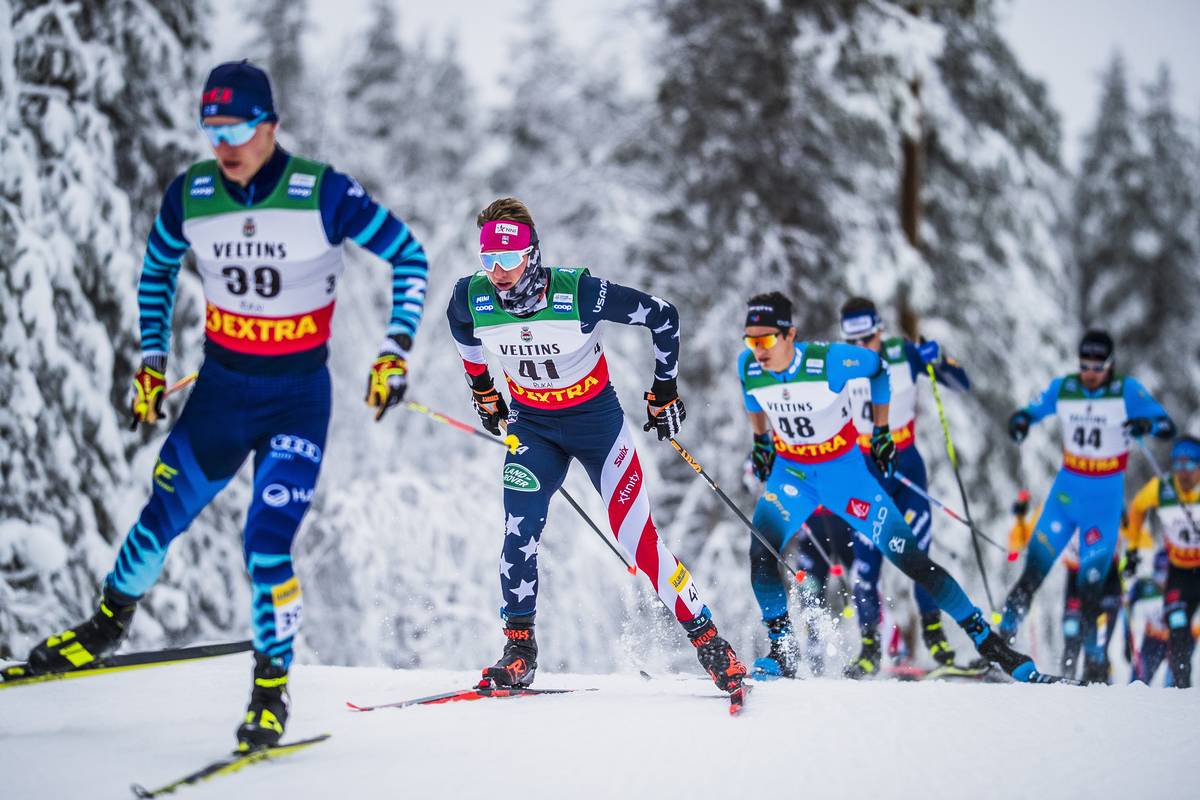
U.S. Ski Team member Scott Patterson placed 42nd in the pursuit (+2:57.2) while skiing the 23rd-fastest time of day. Simi Hamilton was 55th (+3:59.9), Kevin Bolger 63rd (+5:24.7), Logan Hanneman 66th (+5:57.8), and JC Schoonmaker 71st (+9:46.5).
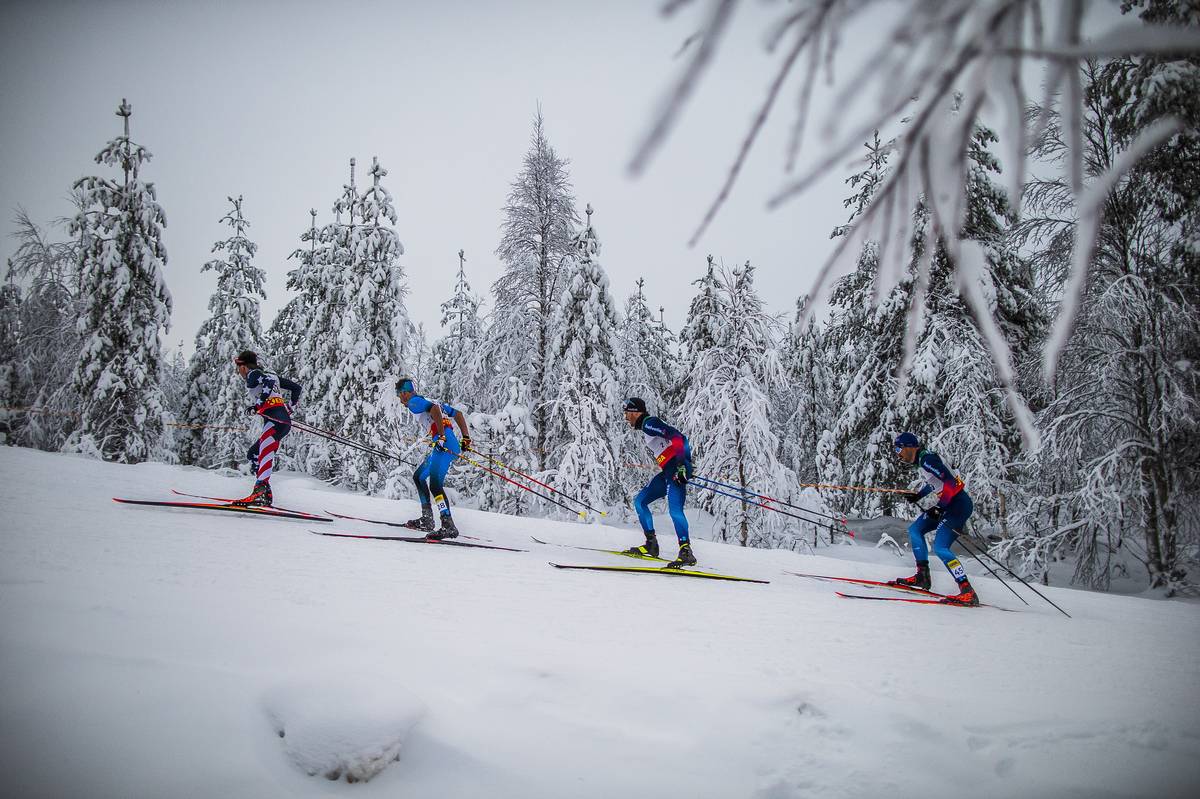
The men’s duo from Great Britain continued their upward trajectory. Andrew Musgrave placed sixth overall (+27.7), Andrew Young 14th (+46.9). Young skied the fifth-fastest time of day, Musgrave the ninth fastest.
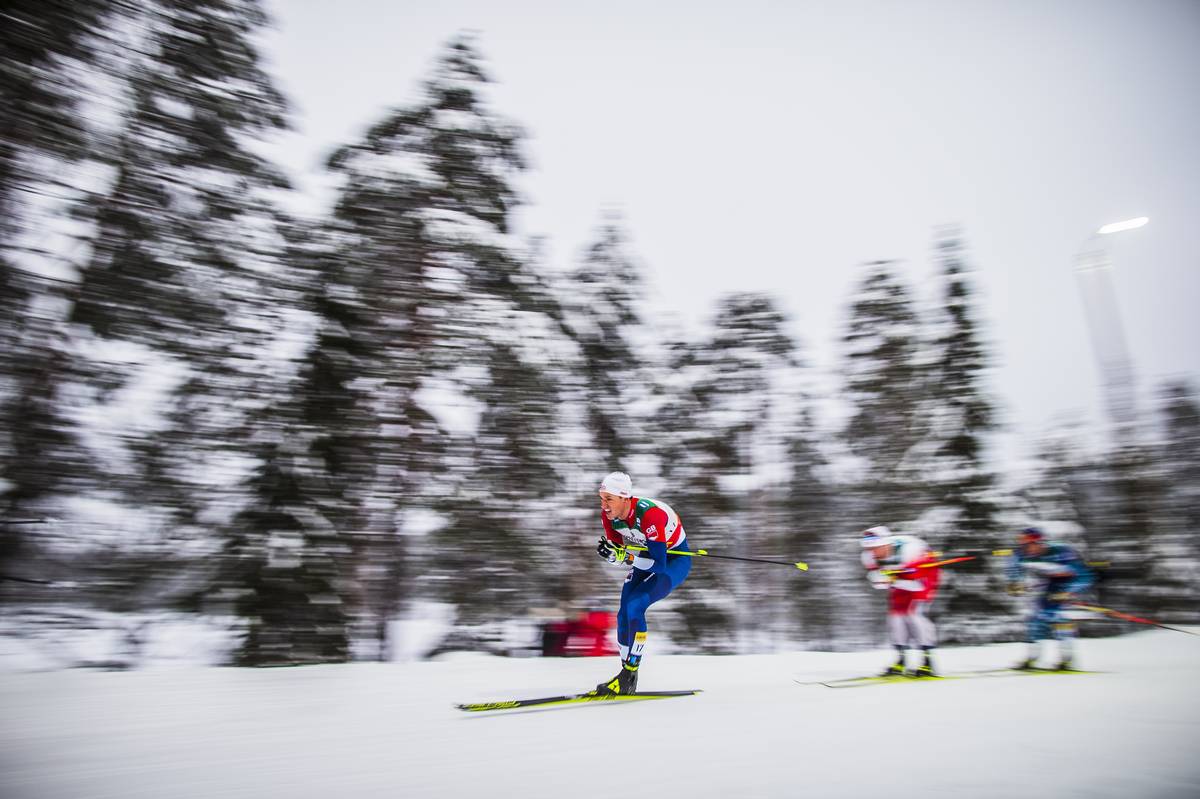
Racing takes a break until December 12, when racing continues in Davos, Switzerland.
Jason Albert
Jason lives in Bend, Ore., and can often be seen chasing his two boys around town. He’s a self-proclaimed audio geek. That all started back in the early 1990s when he convinced a naive public radio editor he should report a story from Alaska’s, Ruth Gorge. Now, Jason’s common companion is his field-recording gear.


